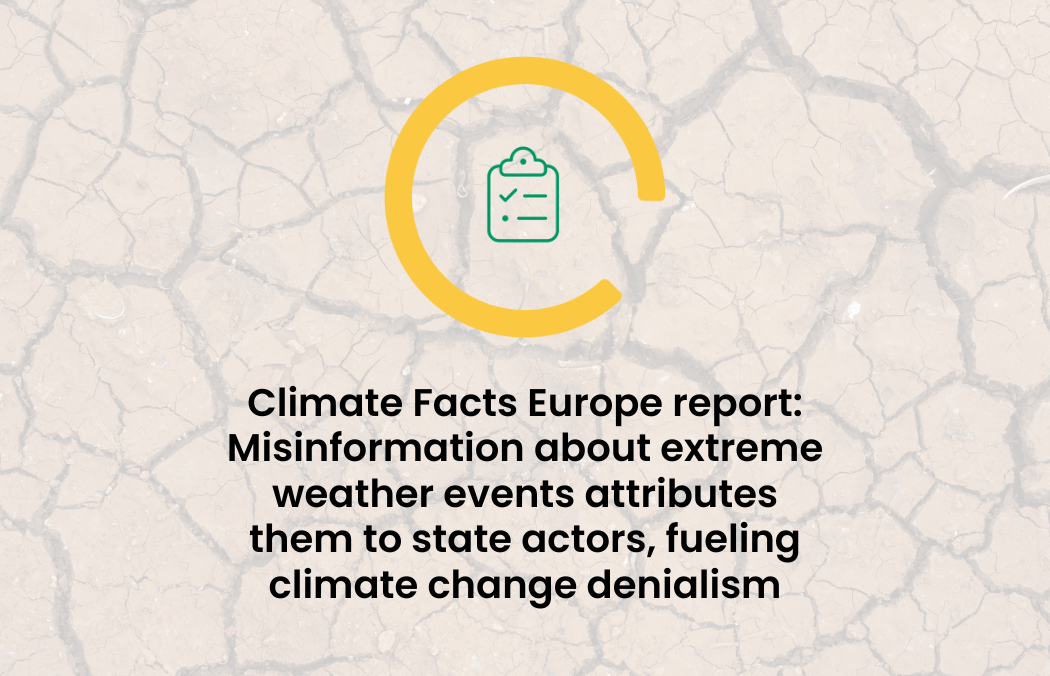
Conspiracy theories that misrepresent extreme weather events blame such climate disasters on state institutions in Italy, Spain and Greece. They are a part of climate denialism in Europe, according to a report by European fact-checking organisations. The report examines specific climate misinformation narratives spread in these three countries.
It analyses several specific extreme weather events in Italy, Greece and Spain over the past few years, exploring the misinformation narratives that emerged following the events. The report emphasises how narratives linked these events to state actors, and the role prominent politicians and public figures played in spreading this misinformation.
The first case looks at severe flooding events in Italy, which gave rise to conspiracy theories blaming the floods on local governments and weather manipulation.
In Spain, the misinformation narratives blamed water scarcity on state actors. In this case, the Spanish far-right party Vox’s political campaign was also found to have been a spreader of a related narrative about government authorities draining dams to intensify the water scarcity crisis.
Lastly, the report analyses the situation in Greece, where misinformation narratives linked wildfires and to green infrastructure, such as wind turbines, building upon existing false narratives.
In a summer already marked by extreme weather, with June seeing heat waves across southeastern Europe, from Greece to Hungary and Turkey, as well as intense storms and flooding affecting the UEFA European Football Championship in Germany, report authors agree these kinds of conspiracy narratives are likely to continue to emerge.
Maribel Ángel-Moreno of Maldita.es said, “As climate change will boost extreme weather events, mis- and disinformation related to them will appear. Tracking them and the narratives they convey becomes extremely important, as some try to unlink these extreme phenomena to the changing climate. Working on this report has shown the relationship among the narratives that circulate through the three countries.”
The report, titled “Denialism in Italy, Spain and Greece stemming from drought, floods and forest fires: How conspiracy theories misrepresent extreme events to deny climate change”, was developed by fact-checking organisations Maldita.es (Spain), Facta (Italy) and Ellinika Hoaxes (Greece) as part of the Climate Facts Europe project, coordinated by the European Fact-Checking Standards Network. The report draws on fact-checks and debunks from 24 fact-checking organisations across Europe as part of the Climate Facts Europe database, complemented by other sources and data.
This report is the second of four planned to analyse mis- and disinformation identified in the Climate Facts database as part of the Climate Facts Europe project, which will be released about once a month through September in the lead up to and the weeks following the 2024 European Parliament Elections.
Access the fact-checking database at climatefacts.efcsn.com. Follow the EFCSN on X, Threads, and LinkedIn or subscribe to our newsletter for regular updates about our projects.